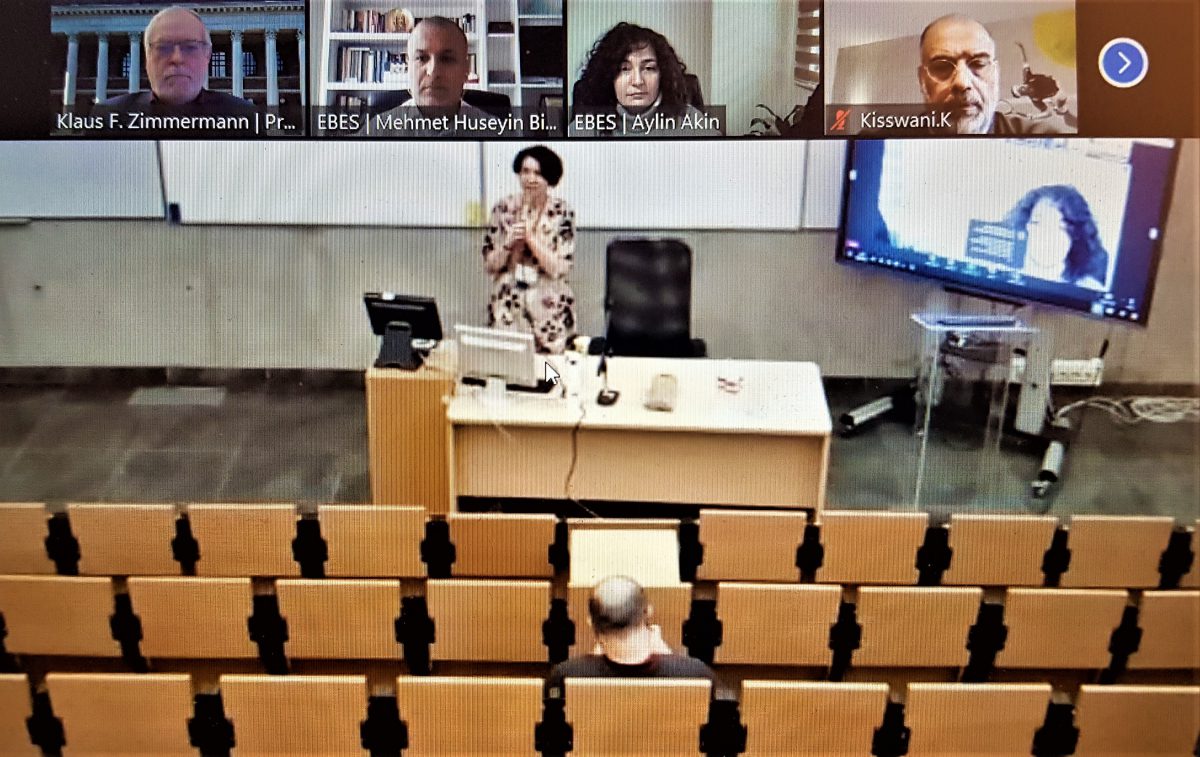A new GLO Discussion Paper finds that an increase in relative age increases the likelihood of being employed, having a permanent contract , and having full-time employment.
GLO Discussion Paper No. 1010, 2022
Does relative age affect speed and quality of transition from school to work? – Download PDF
by Fumarco, Luca & Vandromme, Alessandro & Halewyck, Levi & Moens, Eline & Baert, Stijn
GLO Fellows Luca Fumarco and Stijn Baert

Luca Fumarco 
Stijn Baert
Author Abstract: We are the first to estimate the impact of relative age (i.e., the difference in classmates’ ages) on both speed and quality of individuals’ transition from education to the labour market. Moreover, we are the first to explore whether and how this impact passes through characteristics of students’ educational career. We use rich data pertaining to schooling and to labour market outcomes one year after graduation to conduct instrumental variables analyses. We find that a one-year increase in relative age increases the likelihood of (i) being employed then by 3.5 percentage points, (ii) having a permanent contract by 5.1 percentage points, and (iii) having full-time employment by 6.5 percentage points. These relative age effects are partly mediated by intermediate outcomes such as having had a schooling delay at the age of sixteen or taking on student jobs. The final mediator is particularly notable as no earlier studies examined relative age effects on student employment.We are the first to estimate the impact of relative age (i.e., the difference in classmates’ ages) on both speed and quality of individuals’ transition from education to the labour market. Moreover, we are the first to explore whether and how this impact passes through characteristics of students’ educational career. We use rich data pertaining to schooling and to labour market outcomes one year after graduation to conduct instrumental variables analyses. We find that a one-year increase in relative age increases the likelihood of (i) being employed then by 3.5 percentage points, (ii) having a permanent contract by 5.1 percentage points, and (iii) having full-time employment by 6.5 percentage points. These relative age effects are partly mediated by intermediate outcomes such as having had a schooling delay at the age of sixteen or taking on student jobs. The final mediator is particularly notable as no earlier studies examined relative age effects on student employment.

GLO Discussion Papers are research and policy papers of the GLO Network which are widely circulated to encourage discussion. Provided in cooperation with EconStor, a service of the ZBW – Leibniz Information Centre for Economics, GLO Discussion Papers are among others listed in RePEc (see IDEAS, EconPapers). Complete list of all GLO DPs – downloadable for free.
The Global Labor Organization (GLO) is an independent, non-partisan and non-governmental organization that functions as an international network and virtual platform to stimulate global research, debate and collaboration.
Ends;








